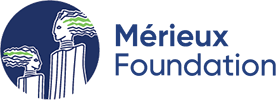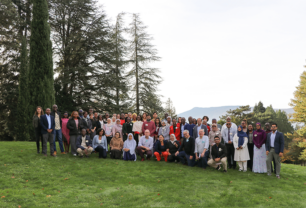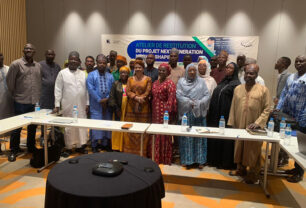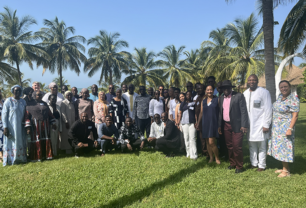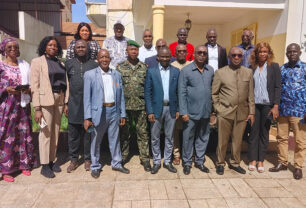The program was organized as part of the REDISSE IV project, funded by the World Bank, in three central African countries: the Central African Republic, Congo, and Chad. Examining nine essential capabilities, the goal was to measure the maturity of the laboratory networks and identify the priority actions to be implemented to strengthen the laboratory system in the human, environmental and animal sectors in the three beneficiary countries.
The results revealed some strengths, such as the existence of a normative framework, a strategic plan and laboratory networks, but also some notable weaknesses, notably in the mobilization of budgetary resources and the creation or increase of the budget line for the Laboratory Divisions of the 3 One Health sectors, and the creation or revitalization of the network of multi-sector laboratories.
The methodology put forward by the Mérieux Foundation involved identifying assessors in each country, training them in how to use the LABNET scorecard tool, and organizing laboratory system assessment workshops with each country’s main laboratory stakeholders, including representation of the One Health approach. The purpose of the workshops was to define priority areas for improvement for each country and for the region as a whole. These efforts helped to provide a deeper understanding of the challenges specific to each laboratory system and to support the countries in developing action plans in response.
The assessments were carried out in collaboration with regional and international experts, guided by the One Health approach. Thanks to the LABNET scorecard tool developed by the African Society for Laboratory Medicine (ASLM), the assessment team was able to collect precise data on the following nine capabilities:
- Policy, legal and regulatory framework
- Structure and organization
- Network coverage and response speed
- Laboratory data (management system)
- Infrastructure
- Human resources
- Laboratory system quality
- Biosafety/biosecurity
- Priority diseases.
The work benefited from the technical expertise provided by the Mérieux Foundation, and particularly its experience with the RESAOLAB project in West Africa.
The assessment led to clear recommendations for action based on the team’s observations, such as:
- Implement and make operational the One Health Committee;
- Develop an action plan to improve laboratory systems;
- Implement a committee to monitor implementation of the action plan;
- Organize a national workshop to share the results of this assessment with all stakeholders;
- Make the laboratory management units autonomous;
- Lobby donors for support in implementing action plan activities.
Following the assessment, a report was compiled for all three countries. The collected data will make it possible to identify priorities and draw up action plans specific to each country.
About LabNet Scorecard
LabNet Scorecard is a tool developed by the African Society of Laboratory Medicine (ASLM) and the Association of Public Health Laboratories (APHL) to measure the performance of national laboratory networks. This tool covers the main international standards for laboratory networks and systems and measures the achievement of nine core capabilities.
